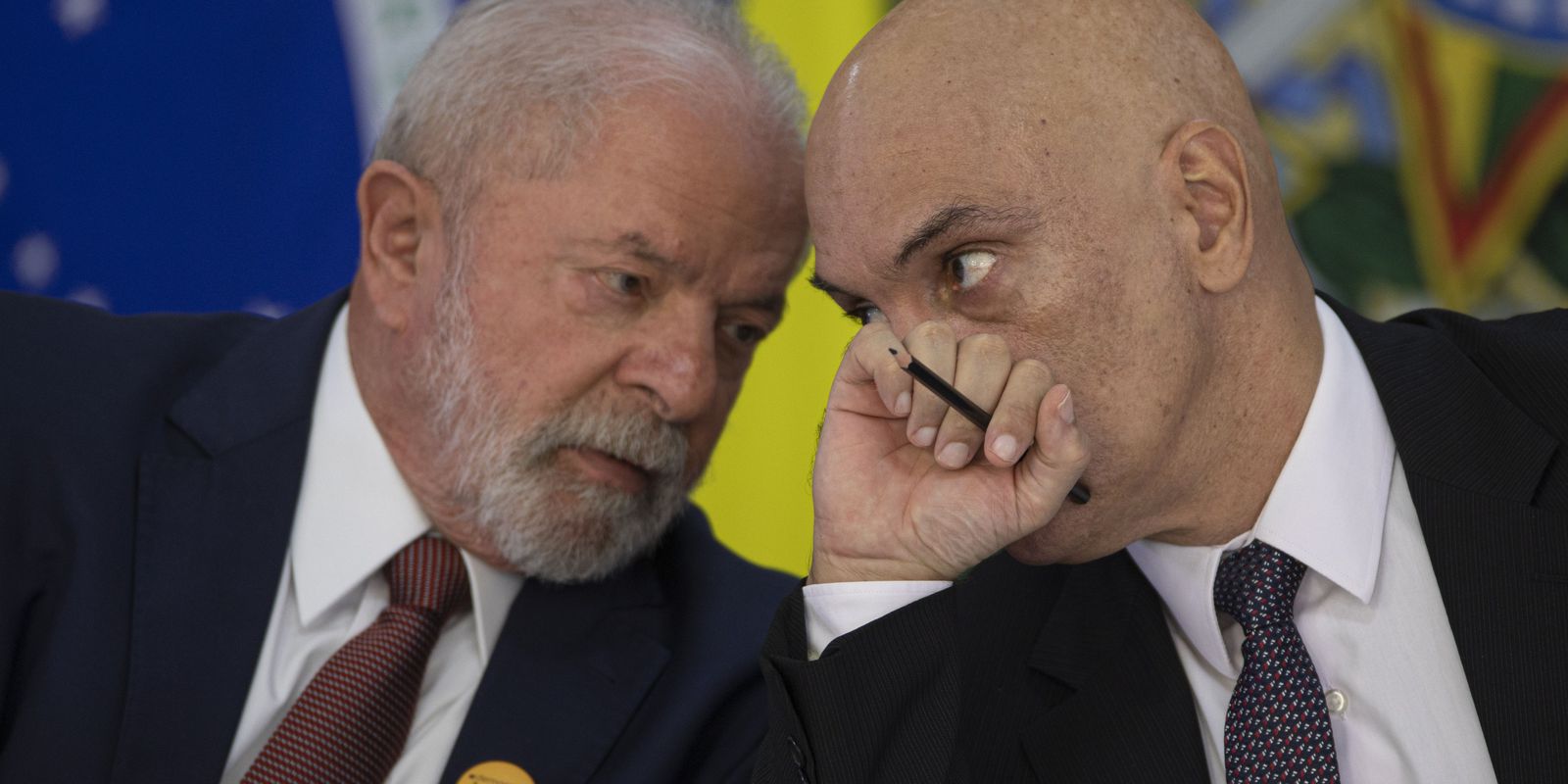The Minister of the Federal Supreme Court (STF) Alexandre de Moraes defended, this Tuesday (18), the inclusion of an article in the Brazilian legislation to make it clear that the rules of the real world must also prevail in the virtual environment. The statement was made during the meeting called by President Luiz Inácio Lula da Silva to discuss policies for preventing and confronting violence in schools.
“We need to determine once and for all that what cannot be done in real life, in the real world, cannot be done in the virtual world,” he said. For this, according to the minister, it would be enough to include “an article in the law, to be regulated by Congress”. “It’s simple”, he added.
In Moraes’ assessment, the problems of violence and prejudice in schools have the same origin: the misinformation that, in general, is promoted via social networks.
“O modus operandi of these instrumentalized aggressions, publicized and encouraged by social networks in relation to schools is exactly identical to the modus operandi that was used against electronic voting machines and against democracy. And the modus operandi instrumented for the 8th of January. There is no difference. Social networks still feel like no man’s land, a lawless land. We need to regulate this”, said the Minister of the Supreme Court when informing that the topic has been widely discussed with the presidents of the legislative houses.
big techs
Moraes stated that, if there is no “regulation and regulation” that are based on models – which are even already known by the big techs responsible for social networks –, the instrumentalization made through these platforms to encourage attacks will continue.
“A few years ago the deep web broadcast these types of messages. The investigation was much more difficult because it was necessary to infiltrate people in that environment to find those responsible. Today it is on the normal social network that this happens. It’s on Twitter. You enter Google and teach a child to make a bomb, and encourage him to repeat the attacks that took place in the United States”, criticized the minister.
These platforms, according to Moraes, are said to be “mere deposits of information” and claim that, therefore, they could not be held responsible. “I make here a simple analogy between the real and virtual worlds. In the real world, if someone owns a warehouse and rents that warehouse out to someone who uses it to commit crimes, obviously they cannot be held responsible. But from the moment the person knows and renews the contract, he can be held responsible. And if it monetizes or profits from it, it is mandatory that it be held accountable”, he argued, stating that social networks profit from encouraging violence and hate speech. “This needs to stop immediately,” he argued.
Proposals
According to Moraes, with a few proposals it would be possible to make “a great leap in quality” in Brazilian legislation. One of the measures suggested by the minister is to provide greater transparency on the algorithms of social networks.
“Why, when we put ‘child’ and ‘attack’ [em uma pesquisa]instead of appearing the news of the attack appears [instruções sobre] how to make a bomb for the bombing? Why does one piece of news go ahead of the other?”, she questioned.
The second suggestion presented by the minister is the extension of the self-regulation methods that already exist for child pornography, pedophilia and copyright.
“I asked big techs if they receive a lot of child pornography and pedophilia videos. They replied that they receive ‘thousands a day’, and that 93% of these videos are removed before they even receive the first one like, comment or view. All based on artificial intelligence,” she said.
For the other 7%, where there are doubts, there is a team that immediately analyzes and removes whatever is necessary.
“All in a very few hours for child pornography; for pedophilia. And for copyrights, because the biggest indemnities of the big techs are copyrighted. So, there, they are concerned”, he added when defending the mandatory use of artificial intelligence and human staff to remove “Nazi, fascist, homophobic, racist and anti-democracy speeches from the networks”.
January 8 coup acts
The minister added that, in the case of acts against democracy, it was enough for social networks to put the “elementary of the type that is a crime”. “If what was being disclosed – for example, encouraging animosity between the Armed Forces and the powers that be – went through this procedure, we would not have had the 8th of January. Everything was organized and encouraged on the networks. And the networks know that they are instrumentalized.”
“Finally, a complex issue, but one that already exists in other branches of law, is the inversion of burden. If the platform, with all these methods, identifies the existence of news that encourages attacks – or is encouraging messages encouraging racism; Nazism in the school –, she must remove it, even if one or another piece of news leaves some doubt, and immediately notify who posted it”, he added when defending that this whole process be done quickly.
Moraes recalled that speeding up this process is not only possible, but has already been put into practice. “Before, it was determined to remove the networks within 48 hours, which is a life on the social network. We changed it to two hours, and, on the eve of the elections, to one hour. On election day, they were pulling out in 15 minutes. So, it’s possible,” he said.
“The same thing [pode ser feita] in relation to attacks or planning of attacks against schools; or bullying against students; proliferation of racist, Nazi or homophobic speech,” he added.







